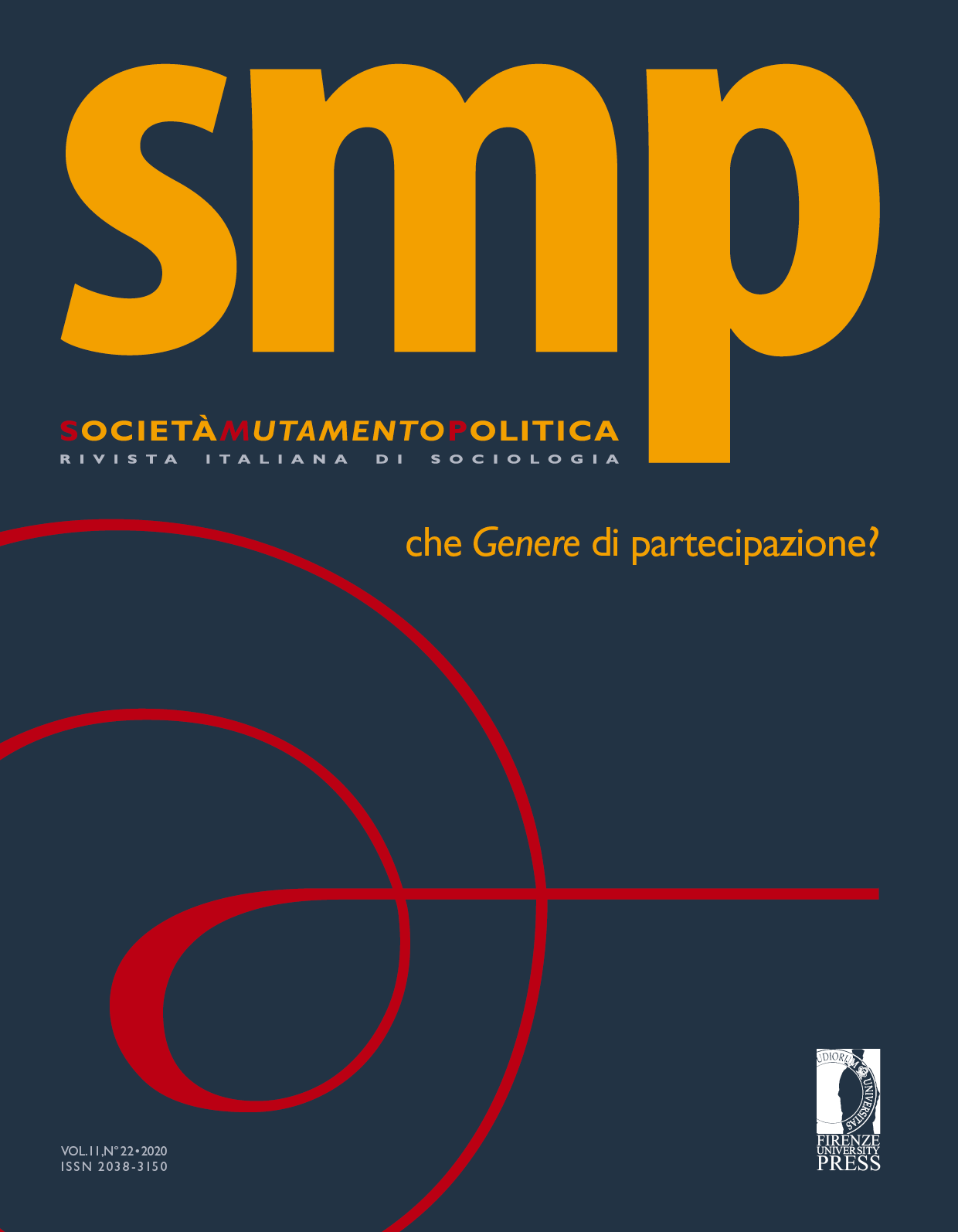Published 2021-03-01
Keywords
- Gender gap,
- gender representation,
- gender politics,
- female leadership
How to Cite
Abstract
The aim of this contribution is to examine the gender inequalities issues, particularly those of women, within the political communication field and leadership processes. Despite several recommendations to reduce the gender gap, women continue to be under-represented in all sectors of society. The question tackles several aspects as the real political opportunities for women to access into public careers and their difficulty of being correctly represented in a still strong masculine culture. The starting point is the imbalance of power into public and political fields and the difficult to affirm gender opportunities in a communicative space where digitalization processes are accentuating inequalities. Along with resistance linked to the dominant political culture, the media system is also responsible for this imbalance. On the one hand, it reproduces cultural models that penalize gender representations, on the other hand, it not intervenes enough to contrast his internal structural imbalance. In addition, the action of gender-related political movements is showing effectiveness in changing the policy making. The broad literature confirms that the problems are not new, but the current political and social situation and the great transformation that has taken place in the field of political communication obliges us to review the theoretical and empirical background.


